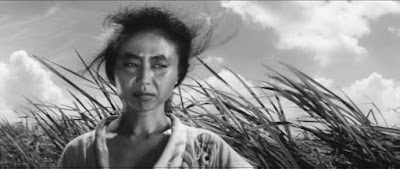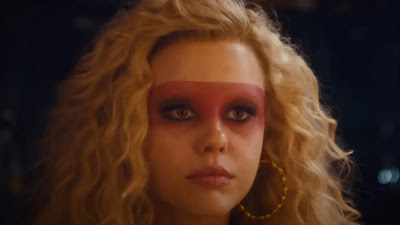Eugene Ionesco's absurdist fable freedom from conformity and resistance to both is presented with big performances and a lot of stagey overreach. This would have rendered it unwatchable but for the casting of Zero Mostel and Gene Wilder in the second of only two pairings on screen. The first was in the deathless Mel Brooks debut The Producers. The relation between their characters in Rhinoceros is immediately reminiscent of that film, with Mostel's John bullying Wilder's Stanley about his life choices. After that opening, though, the dynamic differs when John faces his own transformation and the mood shifts quickly to panic and then pathos. It's worth noting that Mostel was repeating his role from the play's Broadway debut over a decade earlier. But that, while interesting, does not explain the staginess that can drag this film away from compulsion.
It wasn't a standalone production but part of a series of films commissioned by the short lived American Film Theatre project in an attempt to bring the media of film and theatre together by presenting cinematic versions of modern classic plays. I remember this coming to far off Townsville in the mid '70s as a subscription package which was expensive and gave off exclusivist vapours. I thought it sounded stuck up but I also loved the idea of it. Harold Pinter's The Homecoming was one of them and Pinter himself directed Simon Gray's Butley. This was not something I could easily convince my parents to invest in so I let it slide. Later, I saw Butley at Uni and the ABC played most of the titles in late night spots. I was gratified to discover how good they had been. The project was doomed as it tried to reinvent cinema into a more theatre-like deal with the subscriptions and came across as snobbish bullshit. Pity, though.
This is important in considering Rhinoceros as it goes a way toward explaining the staginess of a lot of the action and how most of it is done in sets with little of the freedom of movement that cinema production allows. While it doesn't feel like a filmed stage production the sets, particularly the apartment interiors are exploited for their claustrophobic pokiness. Director Tom O'Horgan came to the gig from his work on Broadway. While he does allow some breakout and is clever in his use of sound to suggest the rhinos on the streets, he does fall back on the kind of blocking that emphasises physical engineering over cinematic setups when bodies have to move together; we're seeing a movie but we're also seeing the cooking while we watch approach of live theatre. I imagine this was intentional but it can lower the tone even of this broadbrush satire.
But then we can easily fall back on the performances. Mostel and Wilder in the leads but also a bright Karen Black with her heyday energy, the character stalwart Joe Silver and the instant comedy figure of Don Calfa as the waiter. But these are the kind of things that while adding to the enjoyment of the film can also date it. I wonder if the final defiance would be done with such anger and futility as it is here. Is Ionesco's proposition about resistance readable in the post-truth realm? Maybe more than ever. Just, don't remake it, watch it, for all its antiquity, the way it is here. It's from when the truth about misdeeds at the top of American society could bring a Nixon down. It's worth the watch for that thought alone.
Rhinoceros is available through Kanopy which you should join now. Free, and through your local public library system(which you should also join now).









